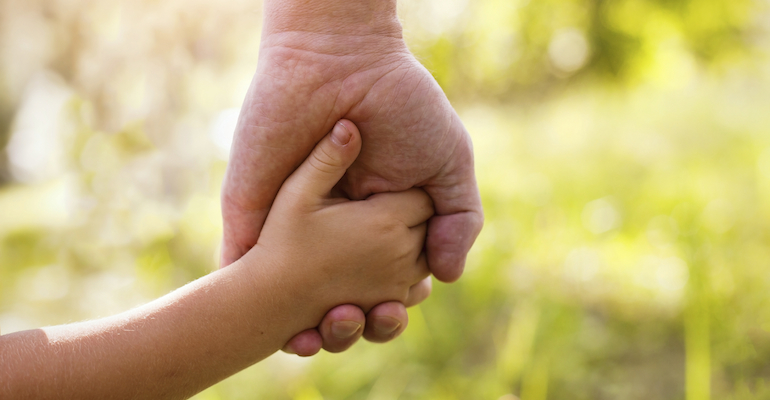My husband and I have had four biological children. Our youngest daughter died of a brain tumor when she was four years old.
When we began to consider adoption, three years later, we spoke to our children, who were then 14, 16, and 18 years old. The response was overwhelmingly positive. Enough time had passed for all of us to be clear that this child would not be a replacement for the sister they had adored, but a joyful late addition to our family.
My father, on the other hand, was unbendingly negative. He had been one of our daughter’s primary caregivers during her illness, and took her loss particularly badly. His unspoken thoughts were plain. We were betraying his beloved granddaughter’s memory by bringing in an interloper and he refused to have anything to do with it, or with her. She would not be his granddaughter, he boldly stated, not this Chinese stranger!
And why Chinese? Couldn’t we get some blond Irish kid if we had to do this stupid thing? In his day, people looked suspiciously at Asian faces and whispered about the Yellow Peril. Now he was supposed to accept one of these children as his grandchild? Nothing we said as the months passed lessened his hard stance.
Two weeks before leaving for China, we called a family meeting and, with tears in my eyes, I begged him not to reject the baby we’d be bringing home. I reminded him that I had greatly loved and mourned my late daughter, but that I was ready to love again and that this child, from my body or not, was coming. Would he try to accept her? Shamed at last, he told me to just let him have some time. He wasn’t a monster, for heavens sake! He was not going to hurt the baby. It was just that expecting him to be her grandfather was going too far.
The day we adopted Mimi, we were reborn as parents and couldn’t wait to share her with the family. She was exquisite and affectionate, and simply overwhelmed us. Our children listened to every detail about their new sister. My father refused to pick up the phone. My mother persisted in repeating our conversations to him, and, grudgingly, he began to be intrigued.
After an unbelievably tiring, three-layover trip, we landed in California. My husband and I were drippy, sweaty messes. Mimi, operating on five hours of sleep, dressed in her finest, was happy as a clam and ready to wow the waiting crowd. We stumbled off the plane and onto the jetway.
My father had snuck past the airport security line, and was the first one to see us. Barely acknowledging my husband’s “Hi,” he stared at the baby as I approached. “Here she is,” I said. Mimi studied him for a second, flashed a 20,000-kilowatt smile, reached out, and squeezed his nose. She’s been leading him by it ever since.
It helps that Mimi is unrelenting in her desire to charm. My father didn’t have a chance. Within weeks, she was throwing herself into his arms whenever he was near. Grandpa (Oh, yes, he most definitely answers to the title — especially since “Ampa” was her fourth word, when she was 10 months old) now takes her for walks around the neighborhood, proudly introducing her as his granddaughter. Her heritage is no longer shameful in his eyes, but just another feature that marks her as unique — for his grandchildren are never ordinary.
None of us realized how much we missed the presence of a small child in our home. Together we shared a great loss, and together we celebrate this great joy as a family.



